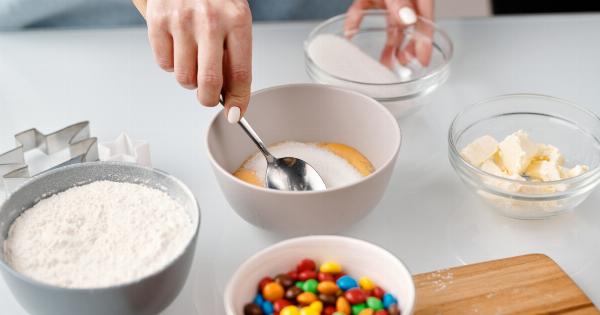Sugar is everywhere and is an essential part of many people’s diets. While it provides a quick and easy source of energy, consuming too much sugar can lead to health problems like obesity and diabetes.
Why is sugar bad for you?
When you consume sugar, your body breaks it down into glucose, which is then used as energy. However, consuming too much sugar can lead to a rapid spike in blood sugar levels, which can cause a host of problems, including:.
- Weight gain and obesity
- Increased risk of heart disease
- Acne and other skin issues
- Tooth decay and cavities
- Increased risk of diabetes
- Increased risk of cancer
How much sugar should you consume?
The American Heart Association recommends that women consume no more than 6 teaspoons of added sugar per day, while men should consume no more than 9 teaspoons per day.
That may sound like a lot, but it’s important to remember that sugar is often hidden in many foods and drinks, including condiments, dressings, and even some types of bread.
One way to keep your sugar intake in check is to read labels carefully. Look for words like sucrose, high fructose corn syrup, and corn syrup, as these are all forms of added sugars.
You can also try to reduce your overall consumption of processed and packaged foods, which tend to be high in sugar and other unhealthy additives.
What are some healthy alternatives to sugar?
If you’re looking to reduce your sugar intake, there are plenty of healthy alternatives that can help satisfy your sweet tooth. Here are some of the most popular options:.
- Stevia: This natural sweetener is derived from the stevia plant and is much sweeter than sugar. It’s a great option for people looking to reduce their caloric intake as it contains zero calories.
- Honey: Honey is a natural sweetener that has been used for centuries. It contains antioxidants and has antibacterial properties, making it a healthier alternative to sugar.
- Maple syrup: Like honey, maple syrup is a natural sweetener that contains antioxidants. It’s also low on the glycemic index, meaning it won’t cause a spike in blood sugar levels like sugar does.
- Agave nectar: This sweetener comes from the agave plant and is a popular alternative to sugar. It’s lower on the glycemic index than sugar and is a good option for people with diabetes.
How can you reduce your sugar intake?
Reducing your sugar intake can be a challenge, but there are several strategies you can try. Here are some tips to help you get started:.
- Read labels: As mentioned earlier, added sugars can be found in many foods, so be sure to read labels carefully and choose products with minimal added sugars.
- Choose whole, unprocessed foods: Whole foods like fruits, vegetables, and whole grains are naturally low in sugar and provide plenty of nutrients and fiber.
- Avoid sugary drinks: Soda, energy drinks, and other sweetened beverages can contain large amounts of sugar, so try swapping them out for water or unsweetened tea.
- Use natural sweeteners: As mentioned earlier, there are several natural sweeteners that can be used as a healthier alternative to sugar.
- Experiment with herbs and spices: Adding herbs and spices like cinnamon, ginger, and cardamom to your food can help add flavor without relying on sugar.
The bottom line
Sugar is delicious, but consuming too much of it can have serious health consequences. By making a few simple changes to your diet and lifestyle, you can reduce your sugar intake and improve your overall health and well-being.





























